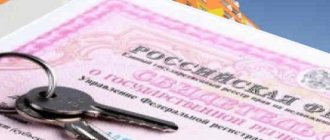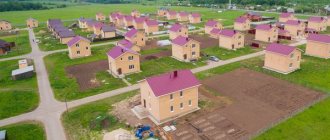Sample contract for residential maintenance
O-sk
January 11 ____
Homeowners' Association "Solnechnoye" represented by the Chairman Ivanov Ivan Ivanovich, acting on the basis of the Charter, hereinafter referred to as the "Contractor" on the one hand, and LLC "Contact Plus Two" represented by the director Petrov Petr Petrovich, acting on the basis of the Charter, hereinafter referred to as the "Consumer" on the other hand, who owns apartment No. 112 in a multi-apartment residential building at the address: O-sk, st. Lenina, d.
205, have entered into this agreement as follows:
Subject of the agreement
1.1. The Consumer instructs, and the Contractor assumes, the responsibilities for providing services in 2021 for the maintenance and routine repairs of the Consumer’s share in the common property of an apartment building at the address:
O-sk, st. Lenina, d.
205 (hereinafter referred to as the apartment building), ensuring the provision of utilities to apartment No. 112 (hereinafter referred to as the apartment), owned by the Consumer, in accordance with this agreement.
1.2. The cost of services for the maintenance and current repairs of the Consumer's share in the common property of an apartment building at the address: O-sk, st. Lenina, d.
205, cold and hot water supply, electricity supply, heating is 29,000.00 (Twenty-nine thousand) rubles.
Rights and obligations of the parties
2.1. The Contractor undertakes:
2.1.1.
Ensure proper maintenance and ongoing repairs of the common property of an apartment building, including the management of an apartment building, in accordance with the Rules and norms for the technical operation of the housing stock, approved by Resolution of the State Committee of the Russian Federation for Construction and Housing and Communal Services dated September 27, 2003 N 170 (hereinafter referred to as the Rules ), including providing services for the maintenance of the local area, cleaning of staircases, removal of solid household waste, maintenance and repair of elevators, maintenance and repair of intercoms.
2.1.2. Ensure the provision of the following utilities to the Premises: a) cold and hot water supply; b) heating; c) power supply.
2.1.3. Carry out routine repairs to the common property of an apartment building.
2.1.4. Make decisions on the procedure and conditions for the maintenance and ongoing repairs of the common property of an apartment building in accordance with the Rules in the manner prescribed by the Housing Code of the Russian Federation.
2.1.5. Carry out its activities in accordance with current legislation, including the Housing Code of the Russian Federation and other regulatory legal acts of the Russian Federation and O-sk, regulating the management, maintenance and ongoing repairs of the housing stock, as well as this Agreement.
2.1.6. Maintain and store technical, accounting, statistical, economic, financial and other documentation related to the execution of the Agreement.
2.1.7. At the request of the Consumer, provide him with information and documents related to the execution of the Agreement.
2.1.8. The Contractor is obliged to transfer funds paid by the Consumer for the provided utilities and services for the maintenance and routine repairs of the Consumer's share in an apartment building directly to service providers at the rates specified in related agreements.
2.2. The performer has the right:
2.2.1. Carry out independent recruitment of service personnel during the execution of the Contract.
2.2.2. Check the technical condition of indoor equipment.
2.2.3. Make demands on the Consumer for timely payment of fees for the maintenance and repair of common property in an apartment building and provided utilities, take measures to collect debt in accordance with the legislation of the Russian Federation.
2.3. The consumer undertakes:
2.3.1. In accordance with the terms of the Agreement, transfer funds to the Contractor for the maintenance and current repairs of the common property of the apartment building, as well as timely pay for the provided utilities.
2.3.2. Maintain the apartment in good technical condition, make necessary repairs at your own expense, including its engineering equipment and individual metering devices.
2.3.3. Respect the rights and legitimate interests of neighbors, rules for the use of residential premises, decisions of the general meeting of residents.
2.3.3. Notify the Contractor within 10 days of changes in the conditions and mode of use of the apartment (occupancy of the apartment, changes in the number of residents.
2.4. The consumer has the right:
2.4.1. Demand from the Contractor compensation for losses and damage caused as a result of the latter’s failure to fulfill or improper performance of its obligations under the Agreement.
2.4.2. Take part in the discussion and adoption by the general meeting of residents of any decisions on the issues discussed, in accordance with the Charter of the Solnechnoye HOA.
Payment under the contract
3.1. The consumer pays monthly through the Contractor's current accounts for the services actually consumed: a) cold and hot water supply; b) power supply; c) heating; at the rates specified in the Contractor’s contracts with actual service providers,
in accordance with the decisions of the general meeting of residents and the decisions of the HOA board.
SAMPLE AGREEMENT ON THE MAINTENANCE AND REPAIR OF COMMON PROPERTY IN AN APARTMENT BUILDING
Moscow "__" __________ 200___
Homeowners Association “_________________________”, hereinafter referred to as the “Partnership”, represented by the chairman of the board _______________, acting on the basis of the charter, on the one hand, and the owner of (residential, non-residential) premises N ___ _________________________________________________ (last name, first name, patronymic of the citizen, full __________________________________________________________________________ , name of the legal entity and surname, name, patronymic of its representative) registered at the address: ____________________________________________, on the other hand, hereinafter referred to as the “Owner”, collectively referred to as the “Parties”, have entered into this agreement as follows: 1. Subject of the agreement 1.1. The parties unite to jointly manage common property in an apartment building. 1.2. The parties bear joint costs for the maintenance and repair of common property in an apartment building. 1.3. The Owner instructs the Partnership to perform the following legal actions on behalf of the Owner and at his expense: - represent the legal interests of the Owner in contractual relations with the manager, resource supply, service and other organizations, in relations with state authorities, local governments, as well as in court; — enter into contracts for the performance of work and provision of services for the management of an apartment building, maintenance and repair of common property in an apartment building, as well as for the provision of utilities; — exercise control and demand fulfillment of obligations under concluded contracts; - carry out and ensure the accrual, collection and transfer of obligatory payments of the Owner to the management organization or service, resource supply and other organizations through a government agency of the city of Moscow, which carries out the functions of accrual and collection of payments for residential and non-residential premises, utilities and other services and resources (hereinafter - the state establishment), unless a different procedure is established by a decision of the general meeting of members of the Partnership or the board in accordance with the charter of the Partnership; — insure hazardous production facilities (gas boiler room, elevators, pumps, boiler rooms and other common property in an apartment building). 1.4. The owner transfers to the Partnership the rights to manage common property in an apartment building (including providing part of the common property for use or rent to third parties), and the Partnership assumes these rights. 1.5. The Partnership in this agreement represents the interests of the owners - members of the Partnership. 1.6. The amount of the Owner's contributions cannot exceed the amount of membership fees of the members of the Partnership. 2. Rights and obligations of the Parties 2.1. The Partnership has the right: 2.1.1. Conclude, in accordance with the law, an agreement for the management of an apartment building, as well as agreements on the maintenance and repair of common property in an apartment building, agreements on the provision of utility resources and other agreements in the interests of the Owner. 2.1.2. Determine the estimate of income and expenses for the maintenance and repair of common property in an apartment building, the cost of major repairs of an apartment building, as well as other expenses associated with the management, maintenance and repair of common property in an apartment building, in the manner established by the charter of the Partnership. 2.1.3. Establish, on the basis of an estimate of income and expenses for the year of the Partnership approved at the general meeting of members of the Partnership, the amount of payments for the Owner in accordance with his share in the right of common ownership of common property in an apartment building. 2.1.4. Determine the procedure for making mandatory payments and other contributions of the Owner. 2.1.5. Require the owner of the premises, as well as the tenant of the residential premises under a social tenancy agreement and a rental agreement for residential premises of the state housing stock, to pay for the maintenance and repair of residential premises, utilities and other services. 2.1.6. Make your own choice of management or service, resource supply and other organizations. 2.1.7. Perform work for the Owner and provide him with services within the framework of his statutory activities. 2.1.8. Make a list of common property. 2.1.9. Leave funds received from savings in your current account until the end of the financial year. The Partnership has the right to spend the saved funds to reimburse expenses associated with paying for additional work and services for the maintenance, current and major repairs of common property, compensation for losses in tortious relations, acts of vandalism, and penalties. 2.1.10. Demand from the Owner of the premises, as well as from the tenant of residential premises under a social tenancy agreement and a rental agreement for residential premises of the state housing stock, to eliminate unauthorized reconstruction and (or) unauthorized redevelopment of residential (non-residential) premises in accordance with the requirements of the Housing Code of the Russian Federation, including in judicial procedure. 2.2. The Partnership is obliged: 2.2.1. Carry out instructions from the Owner. 2.2.2. Represent the legal interests of the Owner in contractual relations with the manager, resource supply, service and other organizations, in relations with state authorities, local governments, as well as in court. 2.2.3. Inform the Owner about the conclusion of agreements with the management, resource supply, service and other organizations. At the request of the Owner, familiarize him with these agreements. 2.2.4. Ensure the proper sanitary and technical condition of the common property in an apartment building by: concluding in the interests of the Owner an agreement for the management of an apartment building or contracts for the performance of work and provision of services for the maintenance, current and major repairs of the common property in an apartment building, carrying out the specified work and provision of services by the Partnership , monitoring the fulfillment of obligations under concluded contracts, maintaining accounting and technical documentation for an apartment building, planning the volume of work and services for maintenance, current and major repairs of common property, establishing facts of non-performance of work and failure to provide services. 2.2.5. Take measures necessary to prevent or terminate actions of third parties that impede or interfere with the implementation of the Owner’s rights to own, use and, within the limits established by law, dispose of common property. 2.2.6. In the case of concluding, on behalf and at the expense of the Owner, contracts with contractors for certain types of work and services for the management of an apartment building, maintenance, current and major repairs of common property, monitor the fulfillment of these contractual obligations by these contractors. 2.2.7. Monitor the correctness of the amounts of mandatory payments accrued to the Owner. 2.2.8. Conclude an agreement with a government agency to organize the calculation of payments for the maintenance and repair of common property, utilities and other services to the owner of the premises of an apartment building or entrust the conclusion of the said agreement to a management organization in accordance with the management agreement of the apartment building, unless a different procedure is established by a decision of the general meeting of members of the Partnership or board in accordance with the Charter of the Partnership. 2.2.9. Inform the Owner about the procedure for calculating mandatory payments. 2.2.10. Accept work and services under concluded contracts, as well as sign certificates of work completed and services rendered. 2.2.11. Establish and act on facts of non-fulfillment or improper fulfillment of contractual obligations. 2.2.12. Establish facts of damage to the Owner's property. 2.2.13. Inform the Owner about the fulfillment of obligations. 2.2.14. Keep copies of the Owner's title documents for the premises, as well as other documents that are the basis for his residence in the premises. 2.2.15. Issue certificates and other documents to the Owner within the limits of his authority. 2.3. The owner has the right: 2.3.1. Independently manage the premises belonging to him. 2.3.2. Attend general meetings of members of the Partnership. 2.3.3. Receive information about the activities of the Partnership and the agreements it has concluded. 2.3.4. Appeal to court decisions of the general meeting of members of the Partnership or decisions of the board of the Partnership that violate its rights and interests protected by law. 2.3.5. Carry out business activities in premises owned by him in compliance with the requirements of the legislation of the Russian Federation, sanitary, fire safety and other rules and regulations. 2.3.6. Participate in events held by the Partnership. 2.3.7. Exercise other rights in accordance with the legislation of the Russian Federation. 2.4. The owner is obliged: 2.4.1. Take care of common property in an apartment building, landscaping facilities in the local area and green spaces. 2.4.2. Maintain the premises belonging to him in proper condition, preventing mismanagement of it, respect the rights and legitimate interests of neighbors, Rules for the use of residential premises, maintenance of a residential building and local area, Rules for the maintenance of common property. 2.4.3. Use the premises belonging to him in accordance with its intended purpose. 2.4.4. Comply with the requirements of this agreement. 2.4.5. Do not violate the rights of other owners. 2.4.6. Bear the burden of joint maintenance of common property in an apartment building, as well as its major repairs. 2.4.7. Make timely payments for the maintenance and repair of residential premises, utilities and other services (by the 10th day of the current month for the past month) based on payment documents. Payment for the maintenance and repair of residential premises provided under a social tenancy agreement and a rental agreement for residential premises of the state housing stock, as well as payment for utilities, is paid by the tenant of the residential premises within the time limits specified in part one of paragraph. 2.4.8. Promptly notify the Partnership or its authorized management organization (manager) of your temporary absence from your place of residence, as well as of the persons (contact numbers, addresses) who have access to the Owner’s premises in the event of his temporary absence, in case of emergency work. 2.4.9. Timely notify the Partnership or its authorized management organization (manager) about the number of citizens actually living in its premises or working in it. 2.4.10. At his own expense, carry out the maintenance and repair of the premises owned by him and the equipment located inside it, which is not related to common property. 2.4.11. Allow officials of the Partnership, the management organization (manager), enterprises and organizations that have the right to carry out work on electrical, heat, gas, water supply and sewerage installations to enter the premises to carry out preventive maintenance, eliminate accidents, inspect engineering equipment, metering devices and control. 2.4.12. Take necessary measures to prevent damage to common property. 2.4.13. At his own expense, eliminate damage caused to the property of other owners of premises in an apartment building, as well as to persons living in the premises of the owners. 2.4.14. Provide the Partnership with information about the encumbrance of the premises it owns. 2.4.15. If faults are detected in the premises, immediately take possible measures to eliminate them and, if necessary, report them to the UDS, the Partnership or the appropriate emergency service. 2.4.16. Follow fire safety rules (do not block apartment corridors, passages, emergency exits, etc.). 2.4.17. Do not re-equip or redevelop residential (non-residential) premises without obtaining the appropriate permit. 3. Responsibility of the Parties 3.1. The Partnership and the Owner are responsible for their obligations under this agreement in the manner prescribed by current legislation. 3.2. The owner is not liable for the obligations of the Partnership. The Partnership is not liable for the obligations of the Owner. 4. Duration of the agreement 4.1. This agreement comes into force from the moment of its signing. 4.2. This agreement is valid until the method of managing the apartment building changes. 5. Changes and early termination of the contract 5.1. The Agreement may be terminated early by agreement of the Parties. 5.2. This agreement is terminated in the following cases: 5.2.1. Termination of the Owner's ownership of premises in an apartment building. 5.2.2. The adoption by the general meeting of premises owners of a decision to change the method of managing an apartment building. 5.2.3. Liquidation of the Partnership. 5.3. All changes and additions to this agreement are made in writing in the form of an additional agreement to the agreement and are an integral part of it. 6. Dispute resolution 6.1. Disputes between the Parties are resolved through negotiations or at a general meeting of members of the Partnership, as well as in court. This agreement is drawn up in two copies, one copy for each of the Parties and has equal force.
Sample form of a contract for the maintenance of non-residential premises - form 2021, download in doc
A non-residential property management agreement is a written formal agreement concluded with the aim of regulating relations between the owner and the organization providing utility resources.
The owner has the right to create an offer (project), which specifies the terms of accrual and payment for his services. In turn, the resource supply company must approve or challenge any points and make its decision.
IMPORTANT ! In case of a negative response from the organization, the owner can accept the company’s terms or go to court to establish a fair solution.
Validity
The contract is concluded for the duration of the owner’s use of utilities and terminates when:
The document usually indicates the period of validity of the contract from 1 to 5 years. If, after the specified period, the owner continues to comply with all requirements, then the contract is simply renewed annually.
Purpose of compilation
The interested party in the preparation of the draft agreement is the owner of the premises.
As of January 1, 2021, property located on the territory of an apartment building is recognized as not included in the common property, even if connected to communication networks (Government Decree No. 354).
The purpose of the agreement is to prevent controversial situations between the owner and the management company or homeowners association . Otherwise, the owner of the non-residential premises pays for all services on an equal basis with the home owners, participating in the maintenance and provision of common property.
All service points used by a citizen in non-residential premises must be indicated in this document and agreed upon with the management organization of the building.
Example of a contract for the provision of maintenance services for commercial real estate
The premises cannot be used for illegal purposes, or used in violation of current legislation or orders of federal, city, or municipal authorities.
The Tenant strictly complies with and ensures that all other Users of the Tenant comply with applicable laws (including, but not limited to, licensing and business laws, safety regulations, fire safety regulations, health and safety rules and regulations, environmental regulations and public safety regulations). ), which is applicable at all times to the Premises, the Building, the Common Areas, the surrounding area and any commercial activity of the Tenant carried out by him in the Premises.
Heat supply agreement with the owner of non-residential premises
This article appeared in the wake of a recent contractual dispute between a heat supply company and a consumer - the owner of a premises in an apartment building.
From January 1, 2021, if a consumer in a non-residential premises does not have a written resource supply agreement concluded with a resource supplying organization, the volume of utility resources consumed in such non-residential premises is determined by the resource supplying organization by calculation methods, for cases of non-contractual consumption (unauthorized use).
The Rules for the provision of utility services to owners and users of premises in apartment buildings and residential buildings (hereinafter referred to as Rules 354) tell us this.
Utility or utility resource
According to Rules 354, the consumer - owner of non-residential premises ceased to be a consumer of a utility service and became a consumer of a utility resource.
According to the same Rules 354, the supply of energy resources to non-residential premises in an apartment building is carried out on the basis of a resource supply agreement concluded in writing with the resource supplying organization. The agreement must comply with the provisions of the legislation of the Russian Federation on water supply, sanitation, electricity supply, heat supply, gas supply.
At the same time, the determination of the volume of thermal energy consumed in non-residential premises and the method for consumers to pay for utility services (it seems that the legislator has not fully decided on the concepts) for heating is carried out in accordance with Rules 354.
If the resource supply agreement does not comply with the provisions of the legislation of the Russian Federation on water supply, sanitation, electricity supply, heat supply, gas supply, the agreement is considered concluded on the terms provided for by the legislation of the Russian Federation on water supply, sanitation, electricity supply, heat supply, gas supply and Rules 354.
What is the result? The agreement, on the one hand, ceased to be an agreement for the provision of utility services, and on the other hand, remained an agreement for the provision of utility services in terms of the procedure for determining the volume and method of payment for utility services for heating.
Determining the amount of resource allocated to the consumer
In terms of determining the amount of thermal energy supplied to the consumer, not everything is clear either.
The rules for organizing heat supply (hereinafter referred to as Rules 808) establish the procedure for organizing heat supply to consumers, including the essential terms of heat supply contracts.
In accordance with paragraph 35 of Rules No. 808, in order to conclude a heat supply agreement with a unified heat supply organization, the applicant sends to the unified heat supply organization an application for concluding a heat supply agreement, containing, among other things, the following information:
- heat load of heat-consuming installations by type of heat load (heating, air conditioning, ventilation, implementation of technological processes, hot water supply), confirmed by technical or design documentation;
- the contractual volume of consumption of thermal energy and (or) coolant during the term of the contract or during the 1st year of the contract, if the contract is concluded for a period of more than 1 year;
- calculation of the volume of heat losses of thermal energy (coolant) in the applicant’s heating networks from the balance sheet boundary to the metering point, confirmed by technical or design documentation.
And when concluding contracts, heat supply organizations are guided, first of all, by Rules 808. Including when determining the amount of supplied thermal energy and coolant. For example, in terms of thermal energy losses (which is not covered by Rules 354)
Payment method - what is it?
The method of payment by consumers for heating utility services is determined in accordance with Rules 354.
According to paragraph 42(1) of Rule 354, payment for heating utilities is carried out in one of two ways - during the heating period or evenly throughout the calendar year.
Rule 808 uses the concept of payment method in a completely different way.
The order and correctness of calculations is an opportunity for the consumer to control charges
Rules 808, differently than Rules 354, regulate the procedure for payments for consumed resources for Consumers.
According to Rules 808, consumers pay for thermal energy (power) and (or) coolant in the following order:
- 35% of the planned total cost of thermal energy (power) and (or) coolant consumed in the month for which payment is made is paid by the 18th day of the current month;
- 50% of the planned total cost of thermal energy (power) and (or) coolant consumed in the month for which payment is made is paid before the end of the last day of the current month;
- payment for thermal energy (power) and (or) coolant actually consumed in the past month, taking into account the funds previously paid by the consumer as payment for thermal energy in the billing period, is made until the 10th day of the month following the month for which payment is made .
Rules 808, when determining the planned quantity, rely on the contractual load, and Rules 354 do not operate with this concept at all.
The question arises - how to combine the payment method from Rule 354 and the payment procedure from Regulation 808.
Taking into account the peculiarities of charging for heating, the consumer finds himself hostage to the situation between the management company and the resource supplier.
In accordance with Appendix 2 of Rules 354, the amount of payment for utility services for heating in the i-th non-residential premises in an apartment building, which is equipped with a collective (common house) heat energy meter, is determined taking into account the volume of thermal energy consumed in the apartment building according to the readings of the collective (common house) meter thermal energy.
A conscientious Consumer (in the absence of his own heat metering device), who has already paid 85% of the planned cost of the consumed resource provided for in the Appendix to the heat supply agreement, receives settlement documents from the heat supply organization and sees volumes there that cannot be verified without data from third parties.
And, turning to the Supplier, the Consumer receives a decoding of his own numbers, and not a detailed calculation using data from third parties.
Rules 808 do not provide for the right of consumers to receive detailed calculations of the amount of resource consumed, and Rules 354 regarding consumer rights do not apply to the owner of non-residential premises.
The standard resource supply agreement (Appendix 1(1) to Rules 354) contains the consumer’s right to receive information from the resource supplying organization about the correctness of charges. But this standard agreement concerns the provision of utility services, and not the supply of resources. This is something that resource supply organizations never forget to remind you of in court.
What remains for the consumer?
Dispute with the supplier at the stage of concluding a contract. Conclude an agreement on terms that will allow the Consumer to receive reliable information about payments. Include in the contract provisions on determining the volume and method of payment in accordance with Rules 354.
We must pay tribute to the courts, which recognize the rights of Consumers and include appropriate conditions in heat supply contracts.
These are not all the contradictions between regulations that make it difficult for the Consumer to communicate with the Supplier.
Contract for maintenance, maintenance and repair of non-residential premises 2021 –
The act in question has significance for both participants. The act is aimed at regulating the relationship between representatives of the management company and residents of an apartment building. Management functions can be assigned to only one organization, provided that its activities are licensed.
For this reason, one agreement is drawn up. The conditions reflected in the act are discussed at a general meeting of homeowners. All owners of the premises participate in the process of drawing up the act in question.
To give the decision of the meeting legal force, it is necessary that at least half of the citizens support it. Accounting occurs depending on the size of the premises owned by each individual citizen.
What metering devices are needed?
There are two types of such devices, for both residential and non-residential buildings, these are:
- ODPU (common house metering devices).
- IPU (individual metering devices).
Both are designed to account for all types of utilities, so from 2 to 6 devices can be installed in the room:
- For electricity.
- For heat energy.
- For cold water supply.
- For hot water supply, etc.
At the same time, it is more profitable for owners of non-residential buildings to have personal appliances, as well as a boiler. In this case, the actual resource consumption will be taken into account, not the nominal one.
Utility tariffs for residential and non-residential premises in an apartment building
If you have purchased or rented non-residential premises, you must regularly pay for household services , however, there are some subtleties in this matter that you need to take into account, because the tariffs for residential and non-residential properties differ.
In most cases, everything is very clear with residential premises, because every adult has at least once been faced with the need to pay utility bills.
Agreement for the provision of services (for owners of non-residential premises)
Document [ /32/5/57/ ]: STD SMK 202-2010 Agreement for the provision of services (for owners of non-residential premises)
STD SMK 202-2010 Agreement for the provision of services (for owners of non-residential premises)
| DEVELOPED AND INTRODUCED FOR THE FIRST EFFECTIVE DATE: April 06, 2010 As amended by No. 1 of February 28, 2011 |
AGREEMENT No. [ agreement number
]
PROVISION OF SERVICES
| Chelyabinsk | [“(date)” (month) 20 (year) of the contract ] |
[ name of the Contractor's organization, represented by the name of the position, full name.
in the genitive case of a representative of the company acting on the basis], hereinafter referred to as “Executor”
, on the one hand, and [
name of the Customer’s organization, represented by the name of the position, full name.
in the genitive case of a representative of the company acting on the basis], hereinafter referred to as “Customer”
, on the other hand, have entered into this agreement as follows:
Rights and obligations of the parties
2.1. The performer is obliged:
2.1.1. Provide maintenance of building elements, structures, general engineering and technical equipment, local area, in accordance with approved standards and rules .
2.1.2. Maintain appropriate technical documentation for the building.
2.1.3. Take measures to ensure the uninterrupted operation of the sanitary and engineering equipment of the building.
2.1.4. Consider complaints and proposals received from the Customer regarding the subject of the contract, take the necessary measures to resolve them.
2.1.5. Cleaning the territory of the Customer's technological and household waste, as well as cleaning the local area, is carried out for an additional fee.
2.2. The performer has the right:
2.2.1. In accordance with the procedure established by law, demand compensation for losses incurred as a result of the Customer’s violation of payment obligations and other losses caused by the Customer due to failure to comply with the terms of the contract.
2.2.2. Call the Customer's representative at any time of the day by phone in the event of an emergency of engineering systems in his non-residential premises.
2.2.3. Issue instructions from the Customer to eliminate identified violations, “PPB”, “PUE”. The order is a binding document for execution by the Customer.
2.2.4. Monitor the Customer’s compliance with the terms of this agreement.
2.2.5. Involve subcontractors for certain types of work related to the repair and maintenance of the building.
2.3. The customer is obliged:
2.3.3. Provide the Contractor with the addresses and telephone numbers of responsible persons providing access to the occupied non-residential premises, incl. in case of an accident, after hours, as well as on weekends and holidays.
2.3.4. Provide free access to utility networks, communications, shut-off valves, etc. When carrying out work inside non-residential premises, the approaches to other non-residential premises of the building should not be obstructed.
2.3.5.
Allow representatives of the Contractor, as well as enterprises and organizations that have the right to carry out work on power supply, heat supply, gas supply, water supply, sewerage, fire and security alarm systems, to eliminate accidents, to inspect engineering equipment, structural elements of the building, and metering devices into non-residential premises , as well as control over their operation. In the event of a breakdown of engineering equipment and communications, access is provided immediately.
2.3.6. Maintain non-residential premises in compliance with current sanitary and operational standards, fire safety rules and prevent the storage of explosive substances and air pollutants.
2.3.7. Immediately inform the Contractor about fires, accidents, existing damage and malfunctions in utilities and building structures.
2.3.8. If you change the legal form, name, legal address, bank details, conclude lease agreements or make changes to them, as well as change the Customer, inform the Contractor in writing within three days.
2.3.9. Check with the Contractor at least once a quarter the calculations for utility and operating payments.
2.3.10. Without formalization in accordance with the procedure established by law and without agreement with the Contractor:
– do not redevelop non-residential premises;
– do not transfer utility networks;
– do not install, connect or use electrical household appliances and machines with a power exceeding the technological capabilities of the in-house electrical network, additional sections of heating devices, control and shut-off valves;
– do not connect or use household appliances and equipment, including individual water purification devices, that do not have technical passports (certificates) that do not meet operating safety requirements and sanitary and hygienic standards;
– do not use coolant in heating systems for purposes other than its intended purpose (use of network water from heating systems and appliances for domestic needs);
– do not allow work to be carried out or other actions that lead to damage to the premises or structures of the building.
2.3.11. Comply with fire safety rules (FSR) and electrical safety rules (ELS). The owner of non-residential premises is appointed responsible for fire safety and electrical safety.







